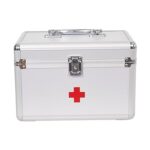High potency synthetic opioids, such as fentanyl and its analogs, pose a significant public health crisis, particularly affecting families involved with child welfare courts. These powerful substances are not only highly addictive but also dangerously potent, leading to increased risks of overdose and severe health consequences. Understanding how high-potency synthetic opioids impact child welfare involved families allows court systems to better protect the safety of children while providing families with the supports and services they need to address opioid misuse. This page provides essential information on the impact of these opioids on families and the role of child dependency courts in addressing these challenges.
In 2024, the Washington State Legislature passed SB 6109 which requires that “the court shall give great weight to the lethality of high-potency synthetic opioids and public health guidance from the department of health related to high-potency synthetic opioids, including fentanyl…” when making removal and placement decisions. The DOH expects the guidance will change over time, as they continue to learn more about the impacts of high potency synthetic opioids on children and families. SB 6109 provided funding for additional training resources, new services, and several pilot programs.
The presence of HPSO in the home by itself does not constitute a legally sufficient basis for removing a child.
Public Health Guidance on High-Potency Synthetic Opioids: Considerations in Assessing Child Safety: https://doh.wa.gov/community-and-environment/opioids/fentanyl-exposure-public-places.
Jump to:
Impact on Families
Health Consequences
Parents and caregivers using synthetic opioids may face severe health issues, impairing their ability to care for their children. Overdoses can result in hospitalization or death, leaving children without parental support.
Child Safety
Exposure to these substances can place children, especially very young children, at risk of accidental ingestion or exposure, leading to serious health emergencies.
Role of Child Dependency Courts

The crisis of high potency synthetic opioids deeply impacts families involved with child welfare courts. Addressing this issue requires a comprehensive approach that includes assessment, intervention, and support services to ensure the safety and well-being of children and help families overcome substance use challenges. By leveraging available resources and effective treatment methods, child dependency courts can play a pivotal role in supporting affected families and fostering healthier, more stable home environments for children and families.
Child dependency courts play a crucial role in assessing the safety and well-being of children in homes affected by synthetic opioid use. Courts can mandate interventions and support services aimed at addressing substance use issues. They can connect families with substance use treatment programs, counseling, and services aimed at supporting recovery and improving family stability. In severe cases, courts may need to take legal actions such as removing children from unsafe environments to ensure their protection and well-being.
Family Treatment Courts (FTCs) play a crucial role in addressing the opioid epidemic by providing a structured, supportive environment that helps families affected by substance use disorders. FTCs combine judicial oversight with access to treatment services, such as counseling, medical care, and social support. Regular court appearances and monitoring supports adherence to treatment plans and promotes sustained recovery. FTCs work closely with child welfare agencies to ensure that children’s safety and wellbeing needs are met, whether through an in-home safety plan, family reunification, or alternative care arrangements. Recognizing that addiction affects many aspects of a person’s life, FTCs offer a range of services, including housing assistance, job training, and educational programs, to support long-term recovery. This integrated approach helps participants address the root causes of their addiction and improve their overall well-being. By addressing the complex needs of families affected by the opioid crisis, FTCs contribute significantly to mitigating the epidemic’s impact on individuals, families, and communities.
Supporting Families
Emergency Medication
Naloxone (also referred to as “Narcan”) is an FDA approved medicine used to quickly reverse an opioid overdose. According to the CDC, Naloxone is safe to give to people of all ages, from infants to the elderly.
Order FREE Naloxone here: https://phra.org/naloxone
Medications for Opioid Use Disorder (MOUD)
FDA-approved Medications for Opioid Use Disorder (MOUD), such as methadone and suboxone, are safe, effective, and considered the gold standard for treating opioid use disorders.
Peer Support
Parent allies and peer support groups offer much needed emotional support and guidance for parents and their families.
Plan of Safe Care
A direct referral pathway that connects infants exposed prenatally to substances and their caregivers to needed support and services.
Harm Reduction Kits
DCYF can provide Harm Reduction Kits to families which include a lockbox, test strips, Naloxone, gloves, masks, informational brochures and resource lists.
Resources
Opioid and Drug Use Data Dashboard
Department of Health dashboard that contains data on counts and rate trends of opioid use among Washington State residents.
SUDORS Data Dashboard
Department of Health dashboard contains data on circumstances surrounding unintentional and undetermined drug overdose deaths in Washington.

















